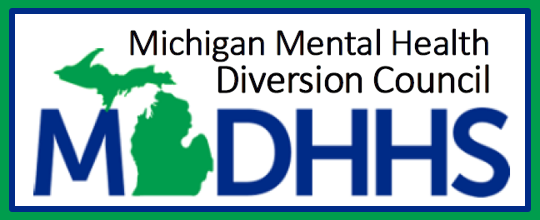Courts
Many individuals living with a serious mental illness (SMI) do not adhere to outpatient treatment, often resulting in increased rates of suicide and self-harm, violent behavior, insecure housing, high utilization of ERs, and frequent contact with law enforcement. These behaviors and vulnerabilities lead to high rates of inpatient psychiatric hospitalization and incarceration.
Assisted outpatient treatment (AOT) is a legal mechanism for providing outpatient treatment to individuals living with SMI whose non-adherence places them at risk for negative outcomes. AOT works by compelling the recipient to receive specific treatment that will prevent their condition from worsening and by committing the mental health system to provide treatment. AOT orders allow concerned parties (such as families and treatment providers) to intervene on behalf of an individual living with SMI without having to wait until that individual reaches a crisis, increasing the individual's ability to function in the community.
Why does AOT matter to courts?
Effective implementation of AOT orders gives the court a unique opportunity to improve the lives of people with SMI who do not adhere to treatment and stop the revolving door of frequent hospitalization and incarceration. The court's oversight role provides structured accountability for both the community treatment provider and the person with an AOT order. A combined AOT and hospitalization order ensures that treatment will be continued in the community upon discharge from the hospital. An AOT only order allows concerned parties (for example, families or treatment providers) a mechanism to intervene prior to a crisis episode, potentially avoiding inpatient hospitalization, dangerous interactions with law enforcement, and further deterioration of their condition.
These individual quality of life improvements, in turn, benefit the larger community by decreasing the stress on hospital EDs and reducing the need for law enforcement responses to mental health crisis calls. Implementing AOT can create positive systemic change with significant cost savings.
What are courts responsible for?
- Receive petitions.
- Receive and review all forms pertaining to the hearing and AOT order.
- Schedule hearings.
- Appoint counsel.
- Record hearing outcome.
- Send copy of order to CMH and/or hospital.
- Act as a mechanism of accountability for both the individual and service providers.
- Oversee notices of noncompliance, terminations of AOT, extensions.
Action steps for courts:
- Train all staff on eligibility for AOT and treatment services appropriate and available. Invite CMH providers to conduct training on mental health and services.
- Develop internal policy and procedure detailing how to implement AOT in your court.
- Designate specific staff members to implement an AOT program within your court.
- Work with community mental health authority to coordinate AOT implementation in your community. Designate a liaison from each organization to facilitate communication, coordination and information sharing.
- Collect data to evaluate AOT implementation.
